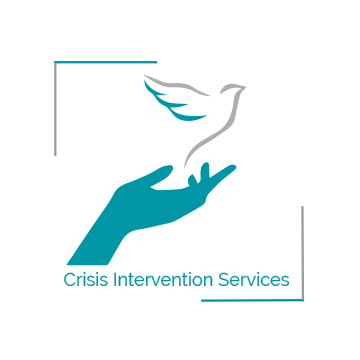FAQ’s About Sexual Assault
If you are in immediate need of help, call our 24-hour hotline:
Sexual Assault Hotline: 1-800-270-1620.
You May Have Been a Victim of Sexual Assault If...
- Raped or forced to have sexual interactions with an acquaintance, stranger, friend, family member, marital partner, spouse, or significant other.
- Sexually exploited by counselors, therapists, helping professionals, or others in a position of power over the victim/survivor
- Sexual harassed
- Pressured, coerced, threatened, or forced to engage in sexual activity by a stranger, acquaintance, or intimate partner.
- Touched sexually without your consent.
- Sexually harassed including vulgar phone calls, comments, offensive contact through social media, or unwelcome advances by an employer, co-worker, teacher, etc.
- Touched inappropriately or in an uncomfortable way when you were a child.
- Unconscious, intoxicated, or otherwise unable to give consent.
Some possible reactions and feelings of Victim/Survivors of sexual assault are:
- Feeling Out of Control
- Guilt
- Depression
- Fear
- Decreased Concentration
- Shame
- Anger
- Confusion
- Self-Blame
- Eating Disorder
- Sleeping Disorder
- Substance Abuse
- Relationship Problems
- Mood Swings
- Difficulty with Sexuality
- Difficulty Working
- Difficulty Being With Others
- Difficulty Being Alone
- Nightmares
- Difficulty Trusting
These feelings and reactions are common to those who have experienced sexual assault. If you have experienced any of these feelings it is important to know that you are not alone. It helps to talk to someone who understands the impact of sexual assault and the healing process.

IF SOMEONE TELLS YOU THAT THEY HAVE BEEN SEXUALLY ASSAULTED OR SEXUALLY ABUSED…
• Believe them.
• Assure them that it was not their fault.
• Tell them you’re sorry that it happened.
• Provide a safe environment for them.
• Seek assistance from an advocate trained to deal with sexual abuse issues.
• Remember that it is important for survivors to make their own decisions as a step to regaining control and overcoming feelings of helplessness.


What to do after a sexual assault?
• Discuss options for emergency contraceptives, STD/STI screening, and other medical needs.
• Try to surround yourself with people who believe you and are supportive.
• Trauma impacts people in many ways. Find a safe person to confide in, such as a therapist, advocate, friend, or family member.
• Take note about times that might be stressful or make you feel unsafe, and discuss these times with your support system.
You have rights. These are your rights as a sexual assault victim:
- You have the right to file a complaint about threats, assaults, or other related crimes.
- If your attacker is arrested for sexual assault, you have the right to seek a no-contact order under Iowa Code section 664A.3 or 915.22.
- If your attacker is arrested for sexual assault, you have the right to register as a victim with the county attorney under Iowa Code section 9 I 5. I 2.
- You have the right to seek restitution against your attacker for harm to you or your property.
- You have the right to apply for victim compensation.
- If your attacker is arrested for sexual assault, you have the right to contact the county attorney or local law enforcement to determine the status of your case.
- If you are in need of medical treatment, you have the right to request that an officer assist you in obtaining transportation to the nearest hospital or otherwise assist you.
- You have the right to a sexual assault examination performed at state expense.
- You have the right to request the presence of a victim counselor, as defined in Iowa Code section 915.20A, at any proceeding related to an assault including a medical examination.
- If you believe that police protection is needed for your physical safety, you have the right to request that an officer present remains at the scene until you and other affected parties can leave or until safety is otherwise ensured.
Facts About Sexual Assault
Why does Rape happen? Rape is an act of violence motivated by a wish to express power, dominance, anger, and control. Rape is not about unfulfilled sexual desire.
How frequently does sexual assault occur?
• One in three women and one in six men will be a victim of some form of sexual assault in their lifetime.
• There have been reported sexual assaults on victims as young as two months and as old as 96 years.
• People of all ages, lifestyles, socioeconomic groups and ethnic groups may become victims at some time in their life.
Is it possible I know the person who assaulted me? The majority of sexual assaults are committed by someone known to the victim/survivor.
Does what I wear to make me a target for sexual assault? Remember the motive for rape is not sexual desire; therefore, the wearing of “provocative” clothing is not a factor in the assault.
Can men be affected by sexual assault? Yes, men can be victims of sexual assault and are also impacted when someone they care about becomes a victim.
The effects a sexual assault can have on a victim:
-
Survivors of sexual assault can heal, but it takes time. Talking with someone who understands the dynamics of sexual assault can help.
-
Physical: pain and injuries; headaches; anxiety attacks; lack of energy; stress-related illness; nightmares; pregnancy; and sexually transmitted diseases.
-
Emotional: anger; denial; shock; guilt; crying; depression; suicide; irritability; fear; shame; embarrassment; sexual difficulties; loss of selfesteem; and sense of control.
-
Social: withdrawal from friends and family; generalized anger toward the people/groups that remind them of the rapist; distrust of the legal or medical systems; difficulty at school or work; the healing process may not be respected or understood by society, friends, or family.
